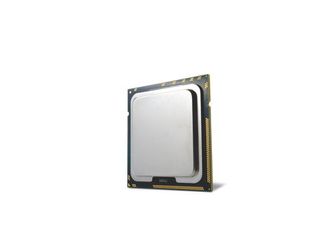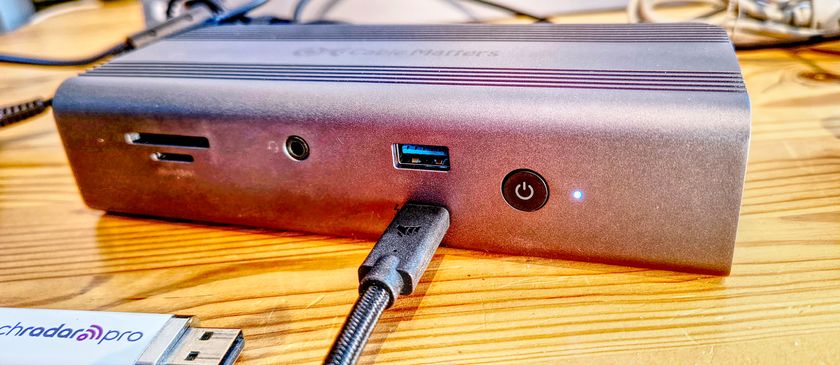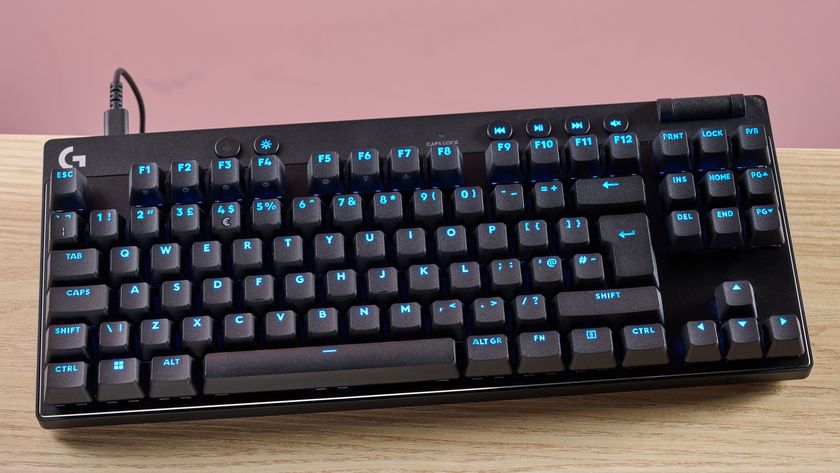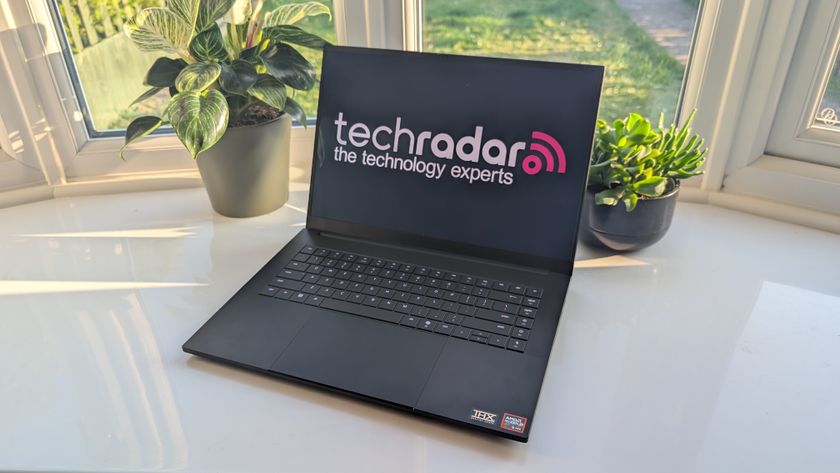Why you can trust TechRadar

Well, to be fair it is a rather speedy, chunky chip. With six full-spec Nehalem cores doing the business, working in parallel, it chews through multithreaded benchmarks like a hot knife through milk.
The rendering performance in Cinebench is something to behold; watching those twelve threads zip across the screen in a dance of mathematics is almost hypnotic. As for video encoding, there really is no desktop processor around that can possibly compete.
In terms of home-computing, this is easily as fast as you can currently go without turning your basement into some sort of evil lair of supercomputers. You know, with lasers and lightening crackling all over the place.
That's especially true when you look at how good that damned silicon is when overclocked. Cranked up to the maximum 4.67GHz we managed to squeeze out of it using my rudimentary overclocking skills it produces benchmark scores we've never before seen.
Anyone familiar with Cinebench will tell you that completing it in 23 seconds is freakishly quick, and hitting 62 fps encoding a 720P video is frankly astounding.
But who cares?
That's not to sound overly flippant, but how many of us really need the sort of power the 990X can give us? The difficulty is, despite the fact that it is indeed the fastest around, you're still looking at limited gains over the fastest Sandy Bridge CPU, the i7 2600K.
Certainly not gamers. Spend the extra £600 or so over the top Sandy Bridge CPU on a bruising graphical array and you'll get far greater returns. The i7 2600K and the 990X offer exactly the same gaming scores, overclocked or no.
Certainly where the multithreading counts those extra two Nehalem cores make themselves known, but the second-gen Core CPU can be overclocked to duck below 30 seconds in Cinebench too.
It may well be an impressive example of Intel's processing technology, but as an actual component anyone should buy it's more than irrelevant.
We'd love to have one humming away in our own rigs, but we could never think of a time when it would be worth it.
We liked:
It's quite simply the fastest processor you can buy, but then for nigh-on a grand you'd hope so.
With six of Intel's fastest cores available it sure does fly through the benchmarks and overclocks like a crazy thing.
We disliked:
It's hard to ignore the pricing of such a chip when you come to review it. Though maybe at this end of the spectrum if you really have to ask the price you can't afford it.
The thing is, you pretty much can. Just one look at the comparative performance of the Intel Core i7 2600K and you've got a chip performing almost identically (actually a tad faster in gaming terms) for nearly £600 less.
To put that in context you could nearly buy a Core i7 2600K and an Nvidia GeForce GTX 590 for the same price as this lonely CPU.
And six-core Sandy Bridge chips are on the horizon, possibly for those willing to take a trip out to Taipei in June...
Final word:
A lightening chip though unreasonably expensive. The last gasp of the X58 chipset?
Current page: Core i7 990X Extreme Edition - Verdict
Prev Page Core i7 990X Extreme Edition - Benchmarks











